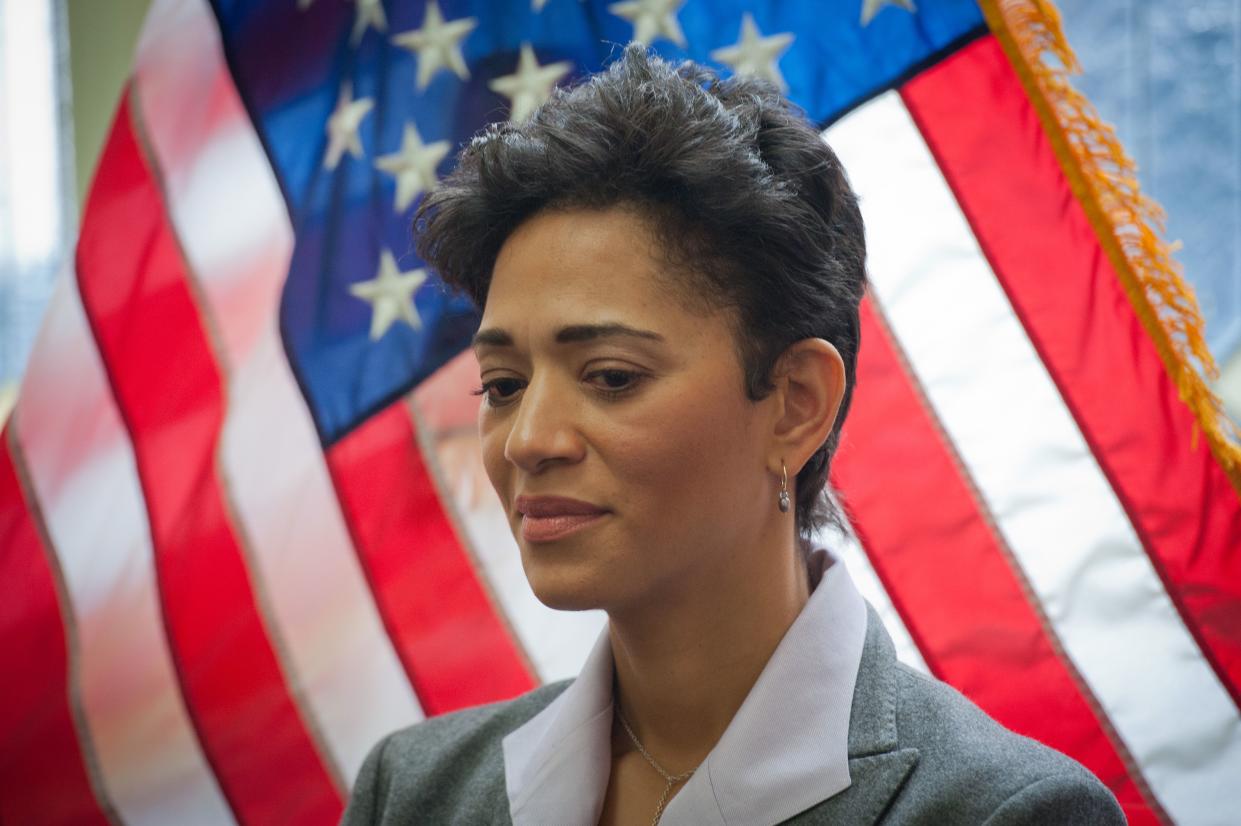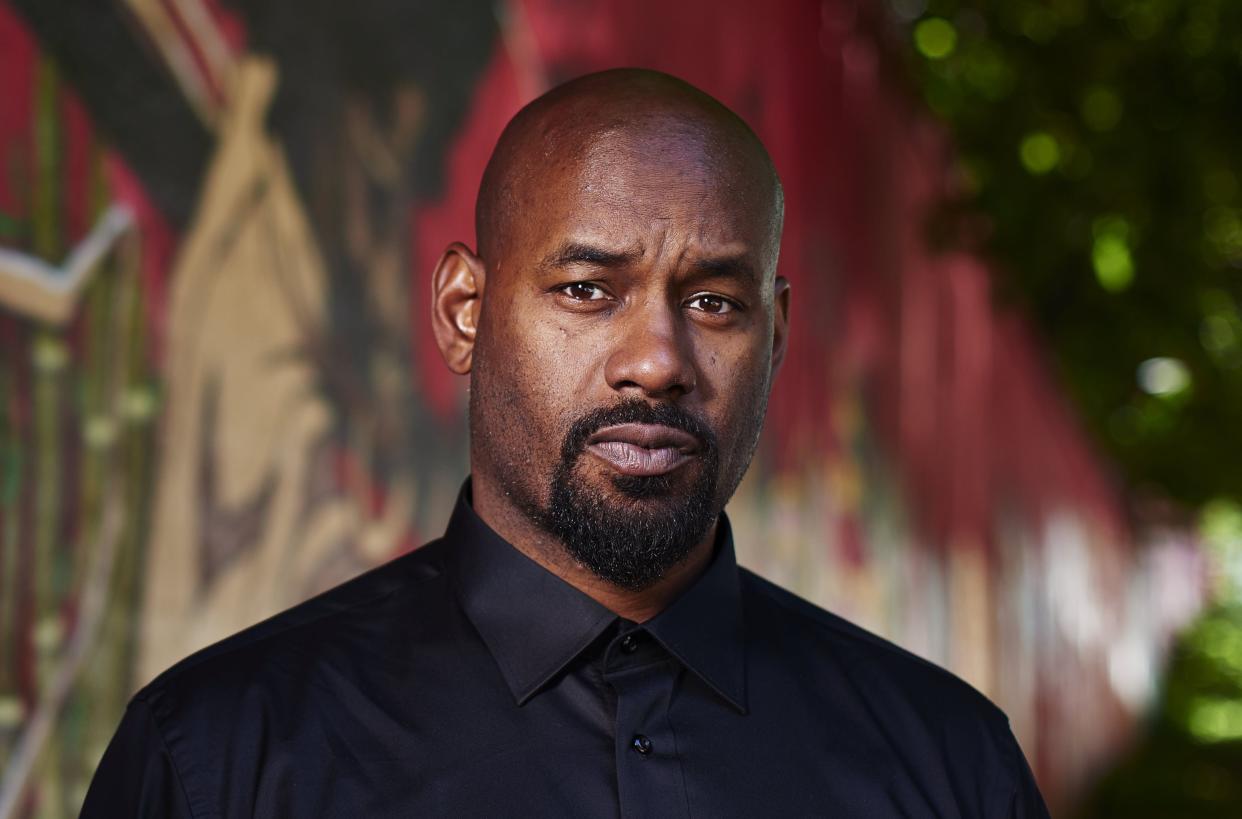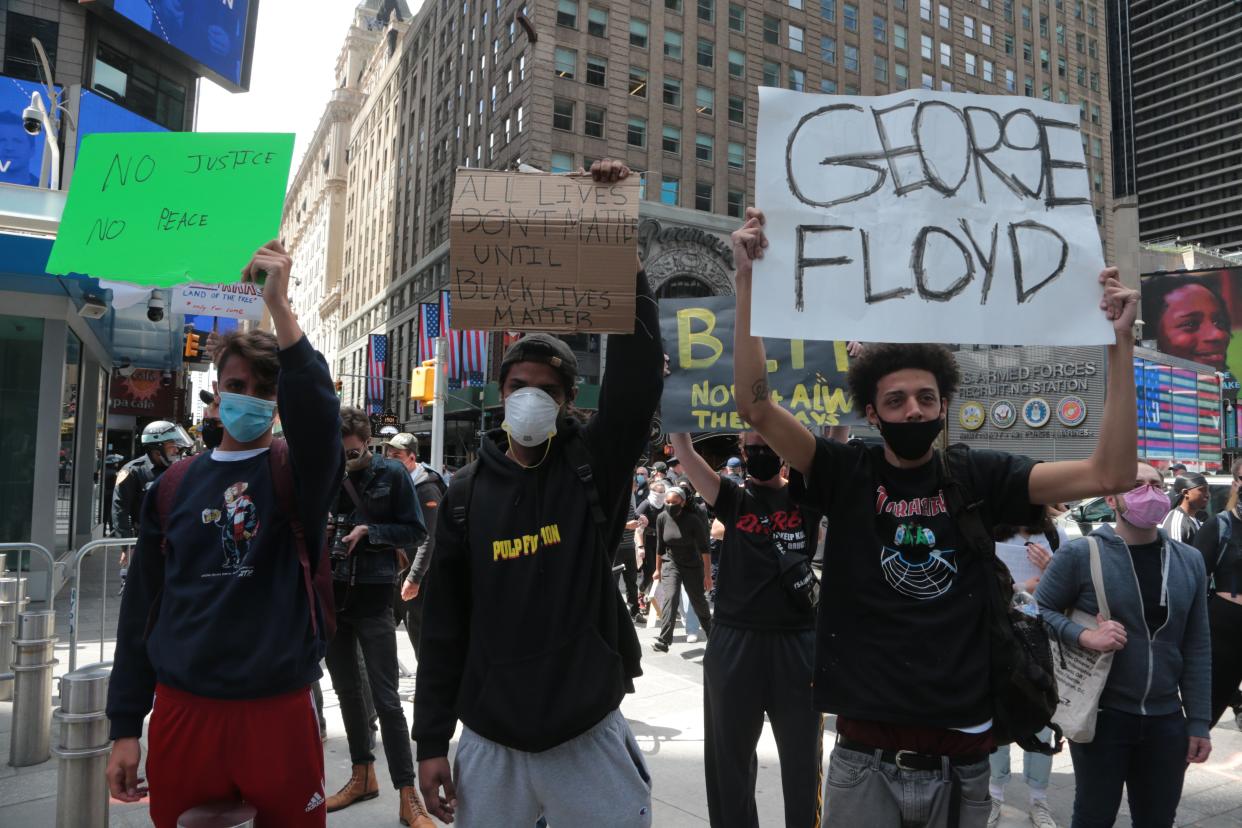Proposed preamble to NYC Charter emphasizing racial justice is on the way
Who can recite the preamble of the New York City Charter?
That’s a trick question — there is no statement of lofty principles at the start of the document that details how local government functions.
But a commission convened by Mayor de Blasio in the wake of the George Floyd protests is planning to propose a preamble emphasizing the city’s commitment to racial justice.
New Yorkers will vote on whether to approve the text — and a host of other proposed Charter amendments from the panel — in November 2022.
The preamble hasn’t been written yet but, in a little-noticed preliminary report published last week, the Racial Justice Commission provided some clues.
The commission said it has been gathering testimony from everyday New Yorkers about the harms of racism for months.
The panel divided up the issues into areas such as “inequity in quality services” and “marginalization and overcriminalization of BIPOC persons and communities,” using an acronym for Black and Indigenous people of color.
The pending Charter amendments will address those problems, with the preamble summing up the city’s values, according to the commission’s report.

The preamble will give “us something to aspire to, something to believe and something to hold ourselves accountable to,” Jennifer Jones Austin, head of the commission, told the Daily News.
She cited the celebrated words of America’s Declaration of Independence — “We hold these truths to be self-evident, that all men are created equal…” — as a possible model for the City Charter.
“We believe that if we’re going to achieve true equity and opportunity for all persons regardless of race, regardless of religion, sexual orientation, identity, we have to have a preamble that sets forth what all New Yorkers should feel that they can receive and have an opportunity for,” she said.
The City Charter has been around in various forms since 1897. It has undergone numerous revisions over the years, including the recent voter-approved amendment establishing ranked-choice voting.

Lawmakers traditionally have viewed the charter as more of a functional document than a statement of principle, according to Doug Muzzio, a political scientist at Baruch College.
He said the goals of the Racial Justice Commission, which says its amendments will aim to “meaningfully increase power ... for BIPOC communities,” are likely to face a host of challenges and questions.
“What is power? How do you operationalize power? How do you operationalize all the rest of the terms?” Muzzio said. “Writing a Charter that is meaningful requires more than high-sounding phrases.”
The commission’s staff has been drafting the preamble after studying texts from postapartheid South Africa and historical documents from other parts of the world, according to Jones Austin, a poverty relief advocate who was co-chairwoman of de Blasio’s mayoral transition.
The text of the preamble and the other Charter amendment proposals are expected in December.

But after years of unsuccessfully lobbying the city to amend the Charter on issues crucial to the Black Lives Matter movement, the commission’s work rings hollow to activist Hawk Newsome.
“The mayor is more interested in doing things symbolically than actually fostering real change,” said Newsome, founder of Black Opportunities Inc., a successor to Black Lives Matter of Greater New York.
“Ninety-five percent of it is fluff,” he said of the preliminary report. “And 5% will be politically convenient.”
With de Blasio leaving office at the end of the year due to term limits, the commission’s Charter revisions will come up for a vote with a new mayor in office.
The campaign of Democratic mayoral nominee Eric Adams, the Brooklyn borough president and heavy favorite to succeed de Blasio, did not answer multiple requests for comment on the commission’s work.
“Racism pervades every pillar of our society, and there’s work that we have to do as a city to overcome it,” said Jones Austin, adding that she hopes critical activists will join public engagement sessions scheduled for the rest of the year.
